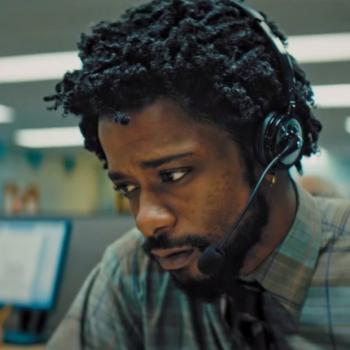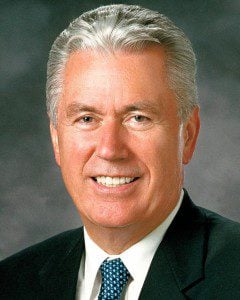Partway through Cloudsplitter, Russell Banks’s ambitious fictional account of John Brown’s adult life, our narrator, John’s third son Owen, reflects that his relationship to his father is analogous to Job’s relationship with God. That is, God is, well, God, just like John Brown was John Brown, and the status entitles this looming divine presence to behave as he will, and Job or Owen must simply follow, because one does not question the divine. As Job says, in chapter 42:
I have uttered what I did not understand, things too wonderful for me, which I did not know . . . 5I had heard of you by the hearing of the ear, but now my eye sees you; 6therefore I despise myself, and repent in dust and ashes.”
This is hard stuff; the sort of religion that Americans today often describe as “Old Testament,” lingo that has become a sort of shorthand for a God who is hard and demanding, a God whose behavior might today be characterized as human rights violations, a God who seems to care more about righteous behavior than self-esteem. However much a distortion of the actual Hebrew Bible this is, believing in this sort of God takes the sort of iron-willed faith that many Americans today recoil from instinctively.
One of Banks’s most impressive achievements is his ability to draw the reader into the sort of world in which this faith is plausible and even sympathetic. The John Brown of Cloudsplitter communes regularly with God, and understands his will, and believes that he is possessed of a knowable opinion on pretty much everything important. For him, Owen tells us, the Bible was not a record of the past: it was, rather, a map of the world around him. Brown eagerly impresses various militants with strategy derived from the Books of Joshua and Judges; he looks to the Bible as a guide for child-rearing, business-dealing, and crop-raising. He lives in a scriptural world of a sort even unusual in his own day. Brown was frequently labeled a “Puritan” a hundred and fifty years after the word was a compliment: to many of his accusers, it had become an epithet for a fanatic – or, alternatively, to his admirers, a sort of grudging admiration for a moral rectitude they did not wish to share.
The catch is that Brown’s absolute – and to us, absolutely foreign – commitment to the Bible also renders him the only white man in the novel capable of truly transcending race. In his discussion of whiteness and blackness Banks anticipates arguments that scholars made with footnotes several years after he published the novel: that something in Brown, as Banks puts it, “went out to the souls of American Negroes, so that he was able to ally himself with them in their struggle against slavery and American racialism, not merely because he believed they were in the right, but because he believed that somehow he himself was one of them.” In his writings, like the essay “Sambo’s Mistakes,” Brown sought desperately to put on the skin of a black man. He himself, in his economic failures, in his furious commitment to a God of stern justice and absolute demand, felt as marginalized in a world of sin as they, and the icy light of his absolute moral clarity overwhelmed his perception of color.
His, son, the narrator Owen Brown, is far less successful, and recognizes his failures. “White is as much a color as black,” he writes, bitterly, of his own incapacity to attain his fathers’ colorblindness, and even white people like Owen, who had no animosity toward blackness, were unable to shake their sense of their own color, and hence their perception of simple difference. John Brown lived in a different world that this, and if he was crazy, Owen tells us, it was merely because he lived in a world in which slavery and racism were sane.
“Even today, at century’s end,” Owen broods at the end of the novel, “we have not reached the end of it” – the continuing racial struggle in America. Owen spitefully mocks those who want “nothing more than to declare the war between the races non-existent.”
This conclusion is grim indeed, worthy of that “Old Testament” God, and it is striking that the novel seems to imply that our continuing plague of racial animosity is derived from our collective failure to be more like John Brown.











